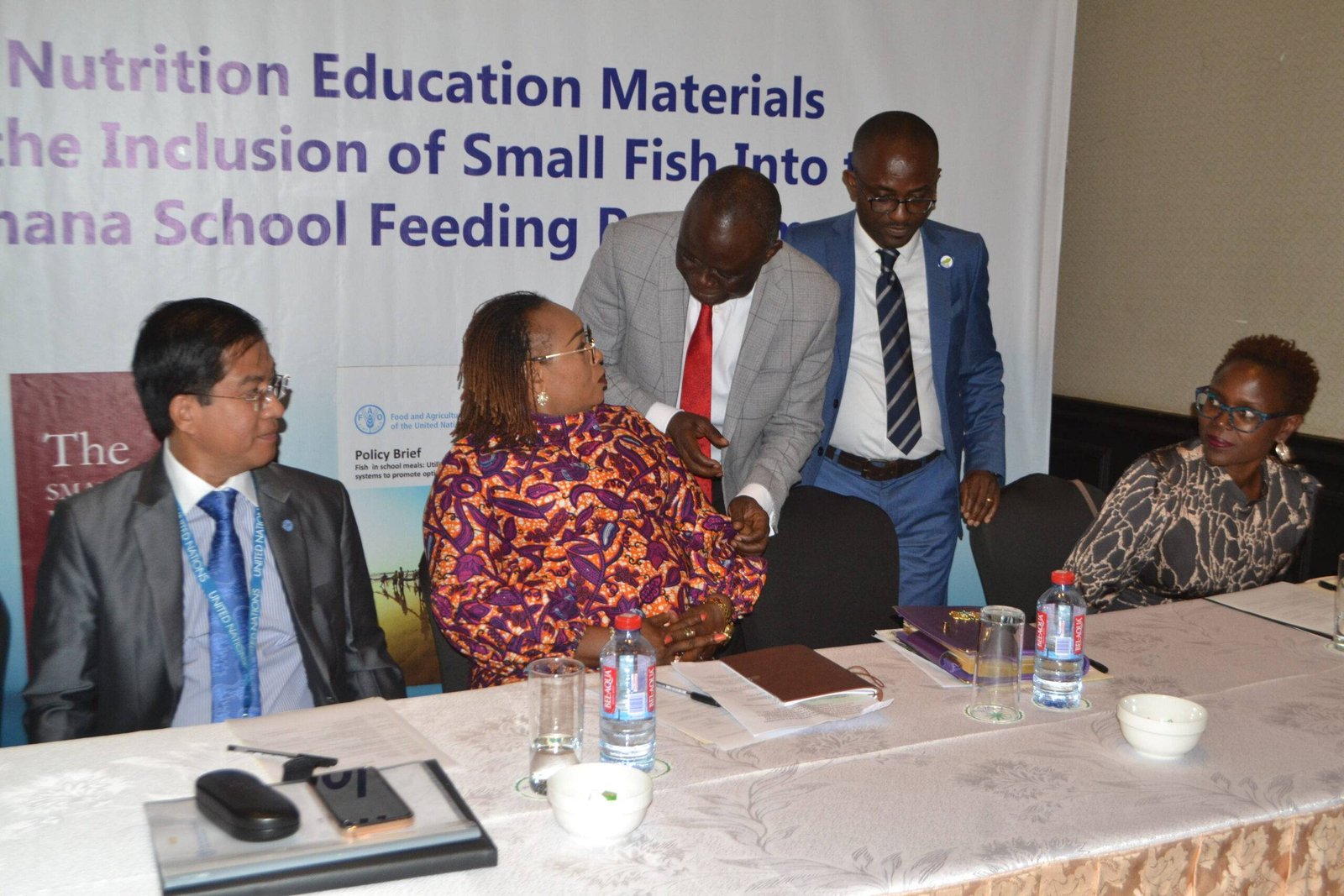[ad_1]
A policy brief on the inclusion of small fish in the Ghana School Feeding Programme (GSFP) and nutrition education materials was launched in Accra yesterday.
The initiative forms part of efforts to ensure school children had access to proper nutrition which is crucial in their growth, development, academic performance and overall growth.
It was developed under that global project funded by the Food and Agriculture Organisation (FAO)’s Flexible Voluntary Contribution Initiative aimed at supporting the government of Ghana in the implementation of the Small Scale Fisheries Guidelines, with particular focus on the post-harvest sector.
The Minister of Food and Agriculture, Mr Bryan Acheampong, in a speech read on his behalf at the launch said school feeding in Ghana started under the Comprehensive Africa Agricultural Development Programme (CAADP) pillar three, which sought to enhance good security and reduce hunger in harmony with the Sustainable Development Goals (SDGs).
The concept, he said was partly in recognition of the fact that nutrition was of high significance in the growth of children, and played a pivotal role in their physical and cognitive development.
“This is recognised worldwide and indeed we are witnessing today, greater emphasis on the use of policy instruments to promote awareness about the importance of adequate nutrition.”
“Not only is nutrition vital for healthy physical growth, it also has profound impact on cognitive function, academic performance and overall health and wellbeing, especially of our children,” he added.
The minister said the inclusion of small fish in the school feeding would provide significant boost to Ghana’s local fish industry, thereby supporting local fishermen, fisher women and fish processors.
This, he said would contribute to the growth of the economy and provide livelihood opportunity for many.
The FAO Country Representative for Ghana, Dr Yurdi Yasmi, in his remarks said the FAO was delighted to offer its support to the government to improve livelihoods, and the general wellbeing of the population.
According to him it was essential that foods available in schools responded to children’s nutrition priorities.
Ghana’s School Feeding Programme since its inception in 2005, he said, had seen good progress.
He mentioned that with 3.8 million beneficiary pupils in 11,000 schools, the programme had provided employment to approximately 11,000 caterers.
Despite these gains, Dr Yasmi said a recent study by the FAO in assessing the implementation of school feeding programmes in 33 middle low income countries including Ghana revealed that there were many issues confronting the efficient implementation of the programme.
For his part, the Executive Director of the Fisheries Commission, Fred Kwasi Antwi-Boadu, commended the FAO for its technical support to the fisheries sector of Ghana.
“The Fisheries Commission understands that fish is an essential nutritional element in children’s brain health and cognitive development.”
“Therefore, supporting a scientific study to guide us with a policy to include fish in school meals is a welcomed development. Small fish holds incredible potential to fight malnutrition and nurture the healthy growth of our children,” he added.
BY RAISSA SAMBOU
[ad_2]
Source link



